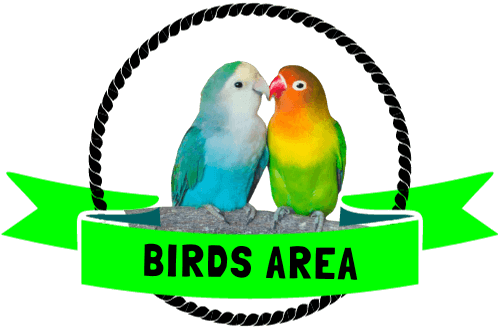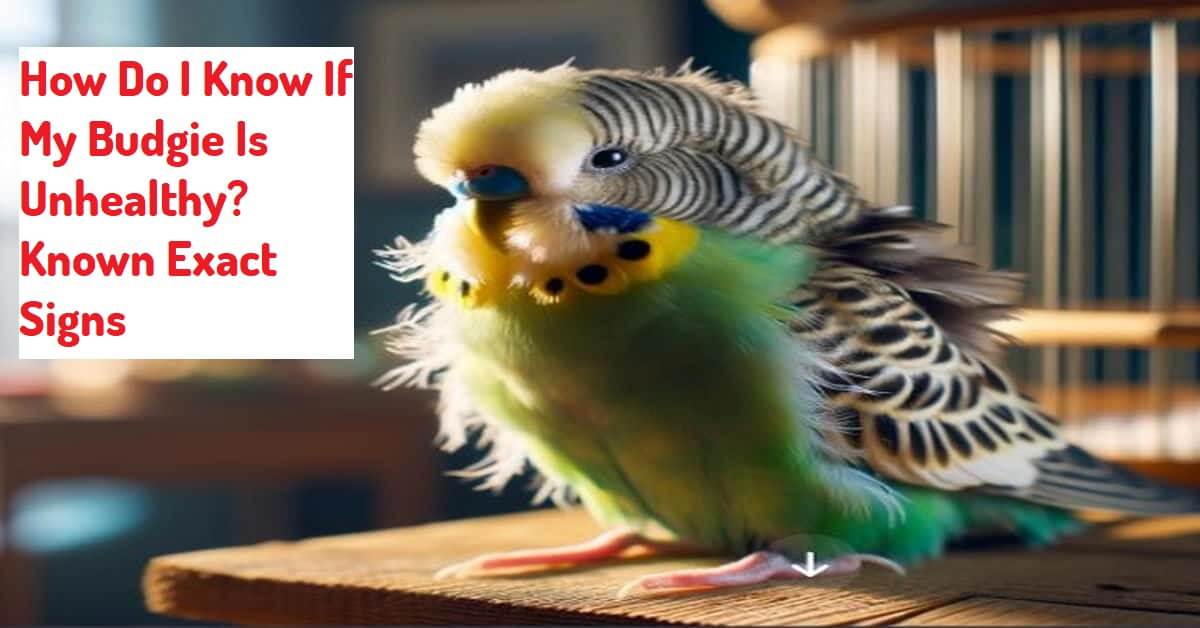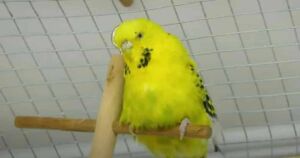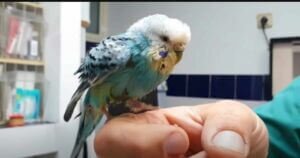How Do I Know If My Budgie Is Unhealthy? Warning Signs to Look Out For
Worried about your budgie’s health? As a caring budgie owner, it’s crucial to spot signs of an unhealthy budgie. Your budgie’s happiness and life depend on it.
To check if your budgie is okay, watch out for messy feathers, poor grooming, stuck faces, fluffed-up feathers, breathing with a bobbing tail, loss of appetite, half-closed eyes, too much sleep, and weird resting positions. Keep an eye on them because budgies can act all cool when someone’s watching.
In this blog, I’ll clue you in on the signs that tell you if your budgie needs a little tender loving care. Knowing these signals means you can take action and keep your little buddy feeling their best. Let’s get started and peek into your budgie’s well-being.
How Do I Know If My Budgie Is Unhealthy?
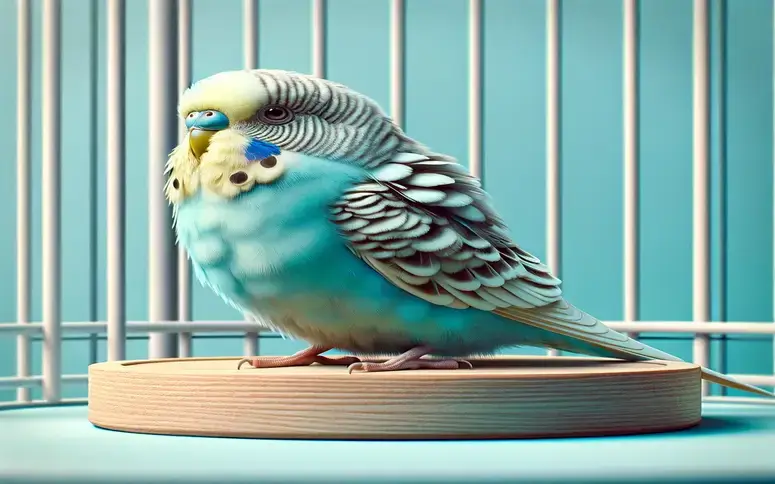
Worried about your feathered friend? Keep an eye out for signs that your budgie might not be at its best. It’s vital to observe your budgie carefully as they may try to hide signs of illness.
Here’s a checklist to help you figure out if your budgie is feeling under the weather:
Early Warning Signs Of An Unhealthy Budgie
Caring for a budgie demands a watchful eye, especially when it comes to their health. Recognizing the early signs can mean a world of difference for your feathered friend. A shift in their normal behavior could signal that something’s wrong.
Let’s explore some of these early warnings to keep your budgie happy and healthy.
Change In Vocalization
Budgies are known for their cheerful chatter, but a sudden change in this behavior is a red flag. You may notice less tweeting, changes in pitch, or even complete silence.
Moreover, this could indicate stress, fear, or illness. Don’t ignore a quiet budgie, as it frequently suggests they’re not feeling their best.
Fluffed Up Feathers
It’s normal for birds to fluff their feathers occasionally. But, if your budgie remains fluffed up for extended periods, this could be a sign of discomfort.
However, this behavior helps them preserve body heat when they’re not well. Be vigilant if your bird looks puffy and lethargic, as these could be telltale signs of sickness.
Other signs to watch for include:
- Loss of appetite
- Irregular droppings
- Wheezing or coughing
- Lethargy or inactivity
- Feathers losing their sheen
Remember, the quicker you act on these early signs, the better the chance of recovery for your budgie. Regular check-ups with an avian vet can ensure your budgie remains in tip-top shape.
Behavioral Indicators Of Distress
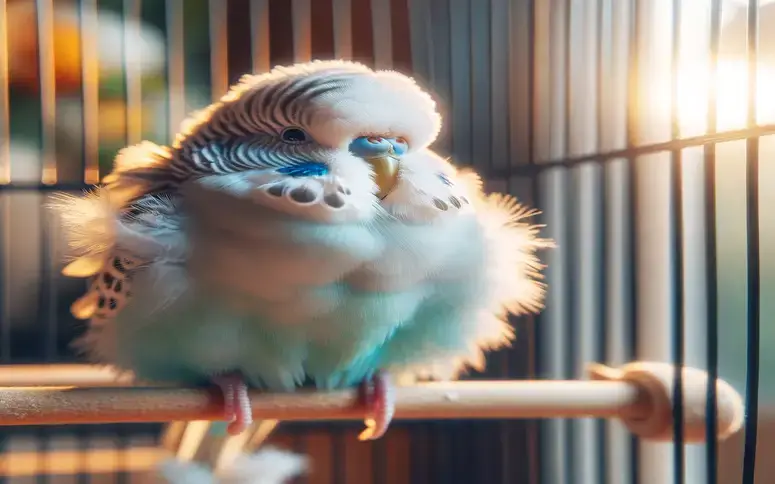
Budgies, or parakeets, are vibrant and active birds by nature. Noticing changes in their behavior can be a key to detecting health issues early.
Being attentive to how they act daily is critical for their well-being. Below we explore several behavioral signs that may indicate your budgie is experiencing distress or is unhealthy.
Decreased Activity
A normally playful and energetic budgie that becomes lethargic or less active may be sending a signal of illness. It is crucial to observe for significant drops in activity levels.
However, this includes less flying, climbing, or interacting with toys or companions.
Unusual Patterns Or Habits
Changes in established routines or the development of new, strange behaviors can be a cause for concern.
This might include odd sleeping patterns, unexpected aggression, or self-isolation. Self-mutilation, such as feather plucking, is another warning sign to look out for.
| Behavioral Sign | Possible Meaning |
| Decreased Singing | May indicate stress or discomfort |
| Change in Vocalization | Potential sign of psychological distress |
| Repetitive Actions | Could suggest boredom or anxiety |
- Watch for reduced interaction with humans or other birds.
- Look for a decline in grooming behavior.
- Notice if your budgie is resting more often or prefers staying at the bottom of the cage.
Physical Symptoms To Watch For
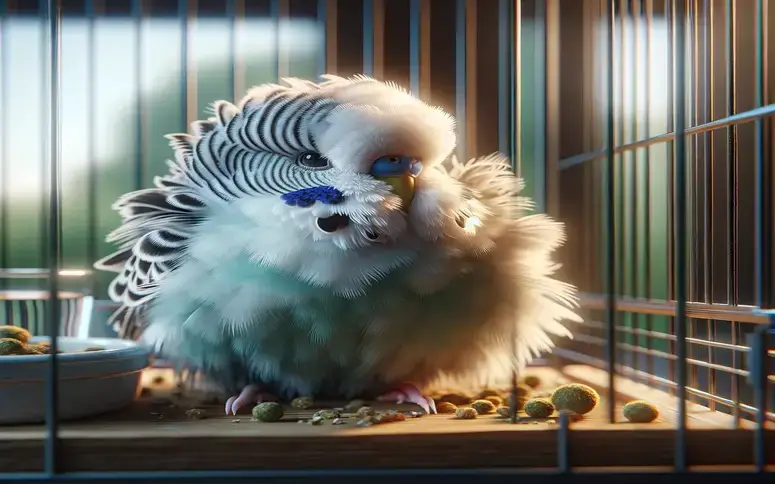
Recognizing the physical signs that your budgie is unhealthy can mean the difference between life and death. Serving as an attentive pet owner, observe your budgie for any physical changes.
These signs often point to health issues. Learn to spot the physical symptoms to act quickly. Addressing health concerns early often leads to a better outcome for your feathered friend.
Ruffled Or Ragged Feathers
Budgies normally have smooth, sleek feathers. If you notice your bird’s feathers staying ruffled for extended periods, consider this a red flag.
Feathers appearing ragged chewed on, or falling off could indicate stress, malnutrition, or other health problems. However, it’s essential to monitor feathers closely.
Visible Weight Loss
Spot weight changes in your budgie by observing its keel bone. This bone should have a thin layer of flesh over it. If it feels sharp, your budgie might be underweight. A weight change can be sudden, so regular check-ins are critical.
Wetness Around The Nose
A budgie’s nose should be dry. Wetness or discharge is abnormal. This can signal a respiratory infection.
If you see crustiness or wet feathers around the nose and eyes, seek veterinary care immediately.
Eating Habits And Digestive Issues That Make Budgie Unhealthy
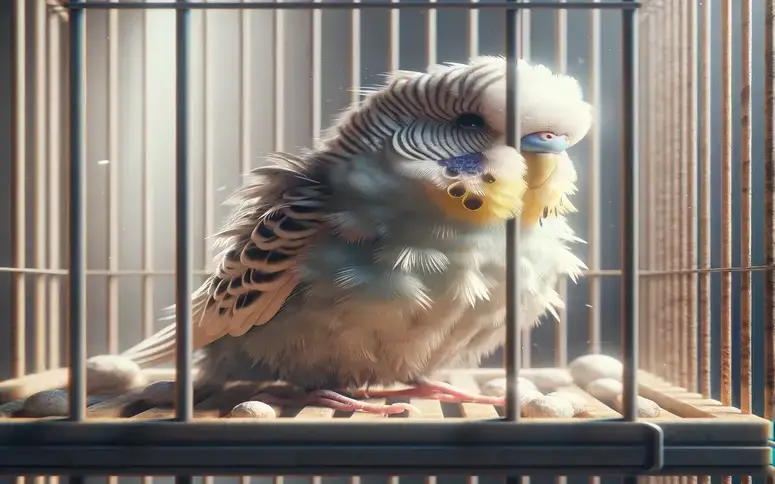
Keeping a close eye on your budgie’s eating habits and droppings is vital. These are strong indicators of their health.
A healthy budgie should have a good appetite and consistent, well-formed droppings. Sudden changes might signal a problem.
Loss Of Appetite
When your budgie avoids food, it’s a red flag. A loss of appetite often points to illness. Monitor how much food remains untouched. Is your budgie pecking at their food or ignoring it completely?
Note these changes. Budgies are naturally energetic eaters. Any decrease in enthusiasm for food warrants attention.
Changes In Droppings
Budgie droppings tell a lot about their health. Normal droppings consist of a dark, firm center with white urine around it.
Look out for these signs:
- Watery droppings can indicate infection or digestive issues.
- Color changes in droppings signal various health problems.
- Undigested food in droppings shows potential absorption issues.
All unusual changes warrant a vet visit.
| Normal Dropping | Abnormal Dropping |
| Firm, dark with white urine | Watery, discolored, or undigested food |
When To Seek Veterinary Care For Taking Care Of Your Budgie
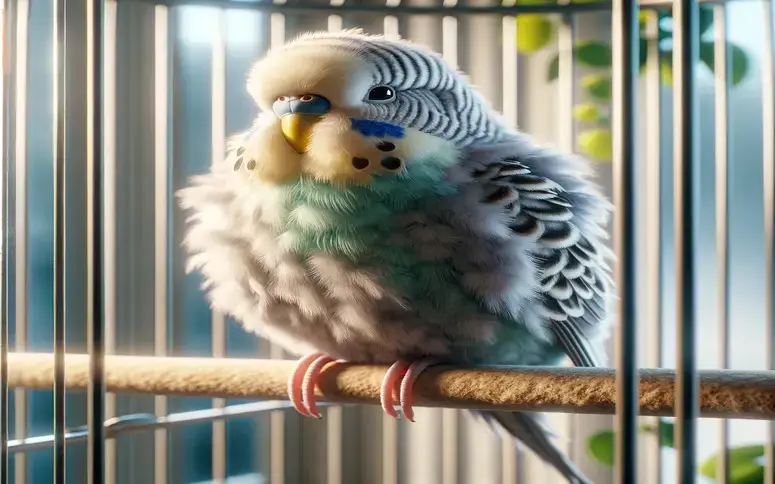
Taking care of your budgie means knowing when they need professional help. Budgies often hide their illness, but certain signs require immediate vet attention. Learn to spot these signs early.
1. Persistent Symptoms
Some symptoms may not seem serious at first but can indicate a bigger issue if they persist.
Your budgie needs a vet if you notice:
- Frequent sneezing or coughing
- Continuous loss of feathers
- Changes in droppings for more than two days
- Loss of appetite that doesn’t improve
2. Sudden Changes In Health
Act quickly if you observe any rapid changes in your budgie’s health. These include:
- Sudden weight loss or gain
- Difficulty breathing, with or without exercise
- Blood on your budgie or in its cage
- Lethargy or weakness, especially if sudden
3. Emergent Situations
Certain situations call for emergency care. Rush your budgie to the vet if you see:
- Any sign of blood or trauma
- A drooping wing or trouble standing
- Seizures or unconsciousness
- Extreme difficulty breathing or gagging
Contact your vet or an emergency animal hospital right away in these scenarios.
Frequently Asked Questions On How Do I Know If My Budgie Is Unhealthy
What Does An Unhealthy Budgie Look Like?
A sick budgie may show messy or oily feathers and lack good grooming. If feathers stick to its vent, that’s a sign of trouble. Watch for puffed-up feathers, tail-bobbing, no appetite, half-closed eyes, and too much sleep. Keep an eye on your budgie, they might hide their illness. If you spot any red flags, it’s best to see an avian vet.
How Do I Know If Something Is Wrong With My Budgie?
Watch for signs like puffed feathers, tail bobbing, half-closed eyes, nose wetness, vomiting, ragged feathers, sneezing, sudden mood shifts, and weight loss in your budgie. Poor grooming and dirty vent feathers also signal sickness. Birds may mask illness, so act fast, and consult an avian vet.
How Do You Know If Your Budgie Is Healthy?
To determine if your budgie is healthy, observe the following signs: shiny feathers, clean mouth, active movement, firm beak, open eyes, and normal droppings.
What Does A Starving Budgie Look Like?
A starving budgie may have a visible breastbone down the center of its chest, giving it the appearance of a boat’s front. Other signs of hunger include constant nibbling throughout the day and underweight.
Sum Up
Keep an eye out for some signs. Check their feathers – if they look scruffy or oily, something might be up. Bad grooming and sticky vent feathers could mean trouble too.
Watch out for puffed-up feathers, tail-bobbing, loss of appetite, and half-closed eyes. Birds can act cool when you’re watching, so stay sharp for any changes. If you spot these signs, get your budgie checked by a vet for the right care.
Lastly, you can also read about why your budgie dyed open eyes.
Hello Dear, I'm Poli Kolymnia, owner of many birds (including budgies).
With a deep passion for these feathered companions, I'm here to share my expertise and extensive knowledge on birds care.
My articles cover essential topics like diet, housing, care, and health, providing practical tips to help you create a happy and thriving environment for your birds.
